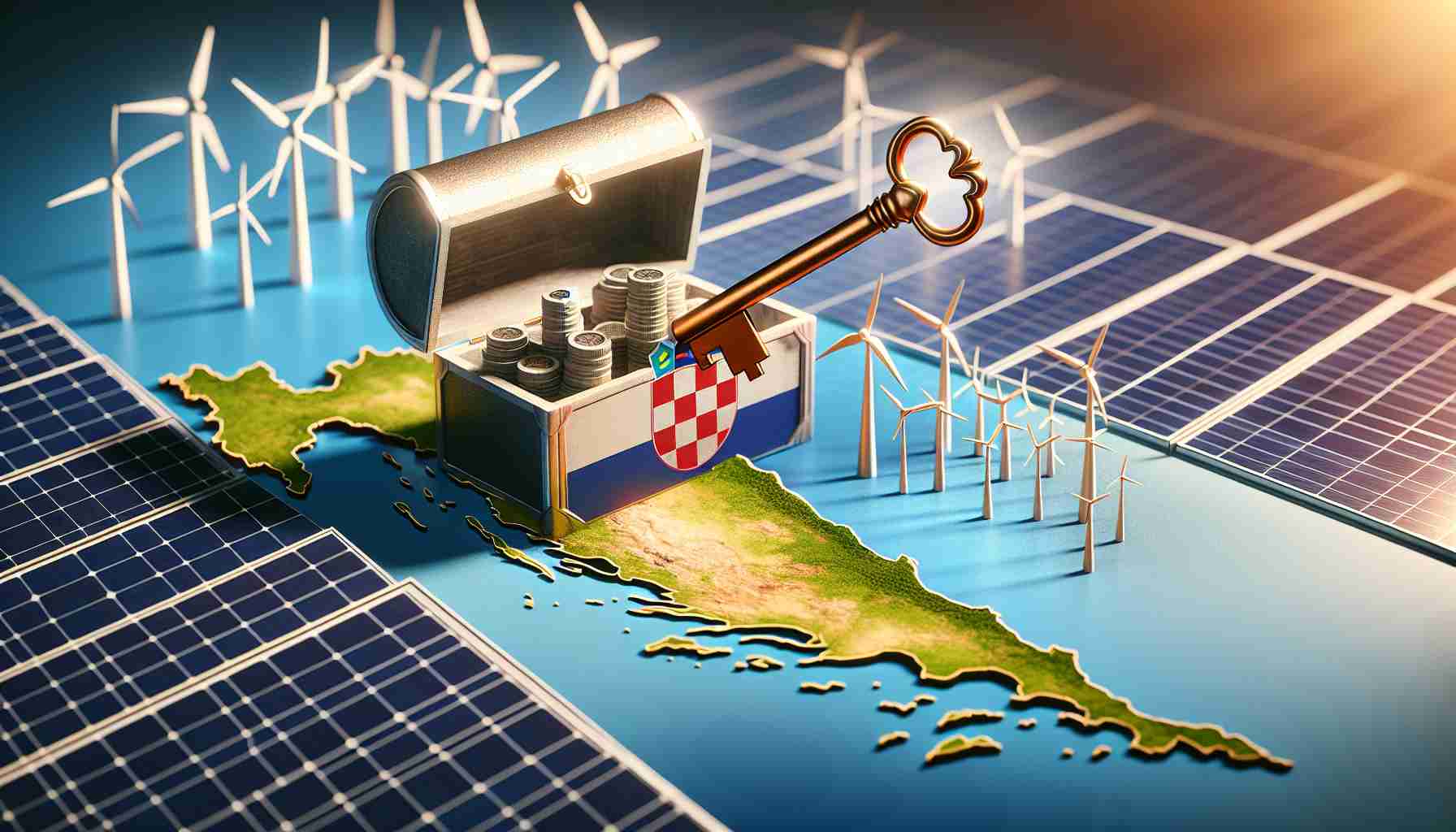Monetizing Energy Efficiency in Croatia
Croatia’s innovative approach to energy efficiency is making waves, paving the way for financial gains through the trading of energy savings. The national framework, steered by the Energy Efficiency Act, allows participants to transform their energy-saving efforts into profitable ventures via a system of white certificates. This initiative will enable various entities, whether obligated or voluntary, to engage in a structured energy market.
At the core of this system is the System for Monitoring, Measurement, and Verification of Energy Savings (SMiV), a vital online platform designed for tracking and verifying energy efficiencies. Key participants include energy suppliers and other obligated parties who must adhere to mandates set forth by the Croatian Ministry of Economy. These entities face penalties if they fail to report their achievements.
Amidst recent updates, Croatia has raised its energy savings targets from 2,993.7 kton to an impressive 4,313.6 kton for the 2021–2030 period, aligning with EU directives. This escalation offers new avenues for participants to either implement their own measures or purchase energy savings from others.
To demonstrate energy savings, professionals prepare comprehensive Energy Savings Studies, providing detailed analyses of efficiency measures. This collaboration is crucial as both individuals and organizations look to capitalize on their commitment to energy efficiency while positively impacting the environment.
Unlocking the Potential of Energy Efficiency Trading
The emergence of energy efficiency trading in Croatia portends significant societal and economic shifts. By monetizing energy savings, Croatia is not just enhancing its energy sector but fundamentally altering how businesses and individuals approach energy consumption. This innovative model can lead to increased competitiveness among companies, incentivizing them to invest in sustainable practices that reduce costs while fulfilling regulatory obligations. As the EU pushes for heightened climate action, Croatia’s initiative could serve as a blueprint for other nations, potentially transforming global energy markets.
The implications extend beyond immediate financial gains. As more entities engage in energy savings, a culture of sustainability could gain momentum, encouraging communities to prioritize eco-friendly practices. This can have a ripple effect, fostering a sense of social responsibility that resonates across various demographics.
Additionally, the potential environmental benefits are profound. By setting ambitious energy savings targets, Croatia is not only contributing to the fight against climate change but also promoting resource conservation and lowering greenhouse gas emissions. Such measures can lead to cleaner air and improved public health, emphasizing long-term significance in tackling environmental challenges.
As countries worldwide observe Croatia’s progress, we may witness a future trend wherein energy efficiency trading becomes a global norm, further steering investments toward sustainable technologies and innovations that respect our planet’s limits.
Unlock Financial Benefits with Croatia’s Groundbreaking Energy Efficiency Market
Monetizing Energy Efficiency in Croatia
Croatia is leading the way in innovative energy management, offering a framework that enables participants to profit from their efforts in energy savings. Central to this initiative is the national Energy Efficiency Act, which empowers various entities, both obligated and voluntary, to participate in a robust market for trading energy savings through a system of white certificates.
Understanding the System
At the heart of Croatia’s energy efficiency structure is the System for Monitoring, Measurement, and Verification of Energy Savings (SMiV). This comprehensive online platform is essential for tracking and confirming energy efficiency achievements. Key stakeholders in this market include energy suppliers, who are tasked with adhering to strict mandates from the Croatian Ministry of Economy. Non-compliance can lead to significant penalties, emphasizing the importance of thorough reporting.
Expanded Energy Savings Goals
In a recent policy shift, Croatia has significantly raised its energy savings targets from 2,993.7 kton to an ambitious 4,313.6 kton for the 2021–2030 period. This enhancement not only aligns with European Union directives but also opens up new opportunities for market participants. Organizations can either develop their own energy efficiency initiatives or opt to purchase energy savings from other sources, thus diversifying their strategies.
How to Engage in the Energy Market
To effectively engage in Croatia’s energy efficiency marketplace, stakeholders should follow a structured approach:
1. Conduct Energy Savings Studies: Professionals need to prepare exhaustive studies that analyze and document the potential energy savings from various measures.
2. Utilize the SMiV Platform: Engage with the SMiV platform for accurate tracking and verification of your energy-saving efforts.
3. Explore Market Opportunities: Identify whether to implement internal measures or purchase certificates from others based on organizational capabilities and objectives.
4. Adhere to Regulations: Stay informed on regulations set by the Croatian Ministry of Economy to avoid penalties and capitalize on available incentives.
Pros and Cons of the Energy Efficiency Market
Pros:
– Financial Incentives: Ability to sell energy savings as white certificates for profit.
– Regulatory Compliance: Encourages adherence to national and EU energy goals.
– Environmental Impact: Significant contributions to reducing carbon emissions and promoting sustainability.
Cons:
– Initial Investment: Upfront costs associated with implementing energy efficiency measures.
– Complexity: Navigating the regulations and requirements can be challenging for organizations without prior experience.
– Market Volatility: Fluctuations in energy prices can affect the profitability of trading energy savings.
Future Trends and Insights
The Croatian energy efficiency market is poised for growth, driven by increasing EU regulations and a global emphasis on sustainability. Organizations that proactively engage with this framework stand to benefit not only financially but also socially, by contributing to a greener future.
Conclusion
Croatia’s innovative approach to energy efficiency represents a compelling model for other nations. By enabling the monetization of energy savings through white certificates, the country not only advances its energy efficiency goals but also transforms its economic landscape. Stakeholders willing to invest in this system will be at the forefront of a vital trend toward sustainable energy management.
For more information about energy efficiency initiatives, visit Croatian Ministry of Economy.
